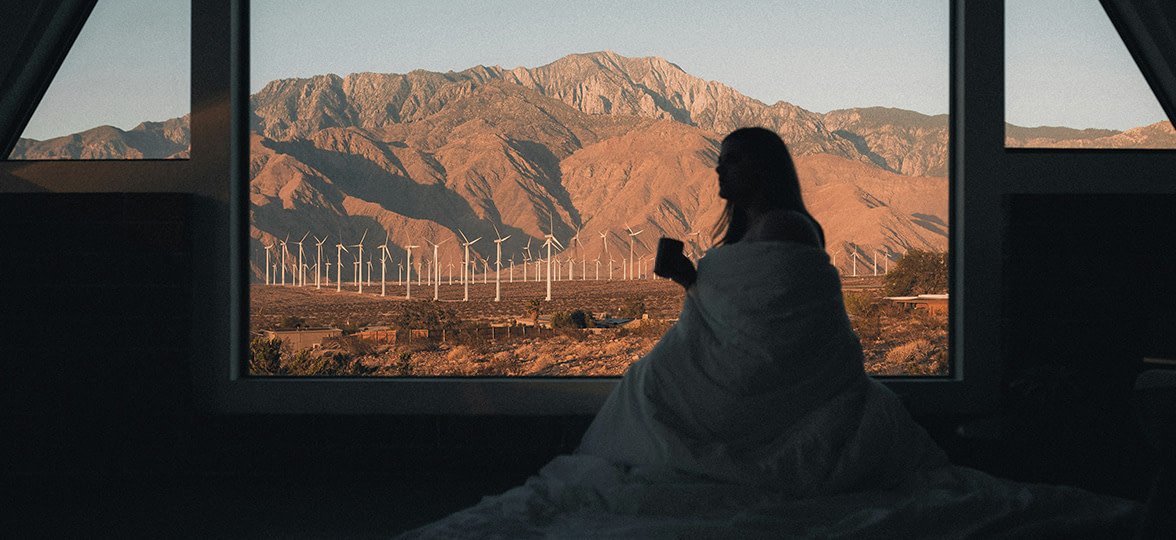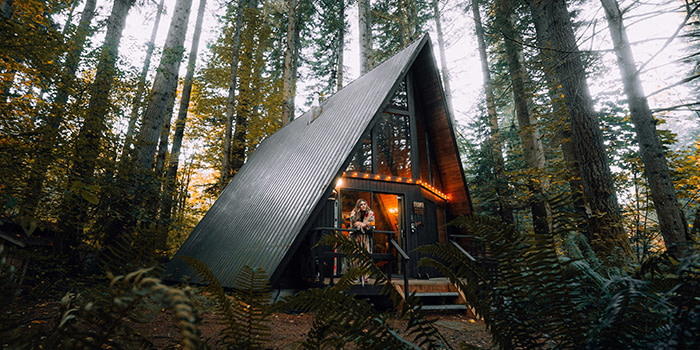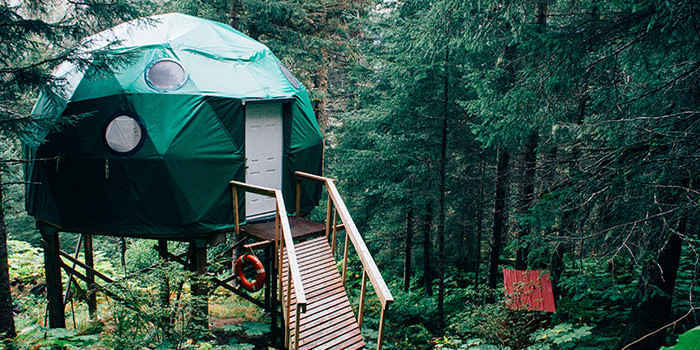From maverick to market leader: how Airbnb rewrote the hotel rules
From challenger to world leader, find out how Airbnb shook up the travel and hospitality industries.

If you’re looking for an authentic, cost-effective, and convenient way to travel, chances are you’ve stayed in an Airbnb. And if you’ve yet to experience the wonder of Airbnb’s online platform, you’ll find loads of unique lodging options offered by hosts worldwide. There are more than 7 million places to stay in over 220 countries, from a private room to a private island. There is no limit to the weird and wonderful – spend your vacation in a Finnish igloo, a snake’s nest in Mexico, or a yellow submarine in New Zealand.
Nowadays, Airbnb is a mainstream way to travel. But when it first appeared on the scene in the early noughties, no one had ever seen the likes of it before. How did this unlikely outlier take on the hotel behemoths and revolutionise the hospitality industry?
We chart the rise of Airbnb to find out how this tiny start-up became a world leader in travel.
Spot opportunities everywhere

It all started in 2007 when two San Francisco roommates, Joe Gebbia and Brian Chesky, were struggling to make ends meet. When a big design conference crowded out local hotels, they seized the chance to make extra money by providing air mattresses and breakfast to attendees. Their clever idea attracted Nathan Blecharczyk, who recognised its potential and became a co-founder. A year later, the trio officially launched “Air Bed and Breakfast.”
Use what already exists
Airbnb received two bookings in its first month. Over twenty years later, it has welcomed more than 1.5 billion guests. Their colossal growth came down to their genius (but simple) business model: they took what already existed and put it into the open marketplace. There was no new infrastructure, inventory, or investment required. It would take years for hotels to replicate this scale, so it was no wonder Airbnb rapidly became bigger than the world’s top five hotel brands.
It shows you that some of the best ideas are born from looking around and leveraging what’s already there.
Innovate around problems

One of the biggest hurdles Airbnb faced was safety concerns. Rocking up and staying at a stranger’s home or welcoming unknown people into your property was pretty much unheard of. But Airbnb tackled this by removing the unknown. Their peer-to-peer platform allows guests and hosts to leave honest and detailed reviews about their experiences, thereby creating a sense of trust. Extra safety features like identity verification and secure payment also helped build credibility. Airbnb is a testament to finding innovative ways around problems to redefine the norm.
Give people what they were looking for
A survey by Booking.com reveals that 75% of travellers “seek authentic experiences that are representative of local culture.” Conventional ‘authentic tours’ flogged by travel companies usually feature typical tourist attractions and commission-heavy destinations. But when you stay with a local person on Airbnb, you get the low-down on an area. You’ll discover the hidden sake bar in Tokyo or the unassuming café in Belgium that serves up the best waffles in town. Airbnb also offers experiences: ‘unforgettable activities hosted by locals’ so you can get up close and personal with a place. From the very beginning, Airbnb understood what travellers were looking for, and built their business around that.
Champion personalisation

Airbnb never took a one-size-fits-all approach to travel. Unlike same-same hotels that offer a standardised service to all guests, Airbnb lets you create your perfect vacation. Whether you’re flying solo, with a family of 10, or traveling with your four-legged friends, you can personalise your whole trip. You can specify your needs, wishlists, interests, and schedule – something you can’t easily do in standard hotels. Airbnb also enabled hosts to utilise their extra space and generate income, as and when they please. No other travel company can match the freedom an Airbnb rental gives you.
Empower human connection
Airbnb has removed the staff behind a desk and breakfast buffets to create a travel economy that’s fuelled by authenticity and human connection. Like their tagline, Airbnb helps travellers ‘belong anywhere’ by giving them a glimpse into real people’s lives. Furnishings, artworks, and design all tell a story, which is something impersonally decorated hotel rooms can’t replicate. Airbnb knows that its’ people are the heroes, and they’ve made it easy for them to connect and share once-in-a-lifetime experiences.
Ready to rewrite the rules in your industry?
It all starts with a great idea. Maybe it’s a conversation over a coffee with a colleague. Or a thought that pops into your head while you’re doodling in your Notebook. MOO has the tools for creative thinkers to capture all your big ideas. Find out more by filling in our short form below.
Keep in touch
Get design inspiration, business tips and special offers straight to your inbox with our MOOsletter, out every two weeks.



